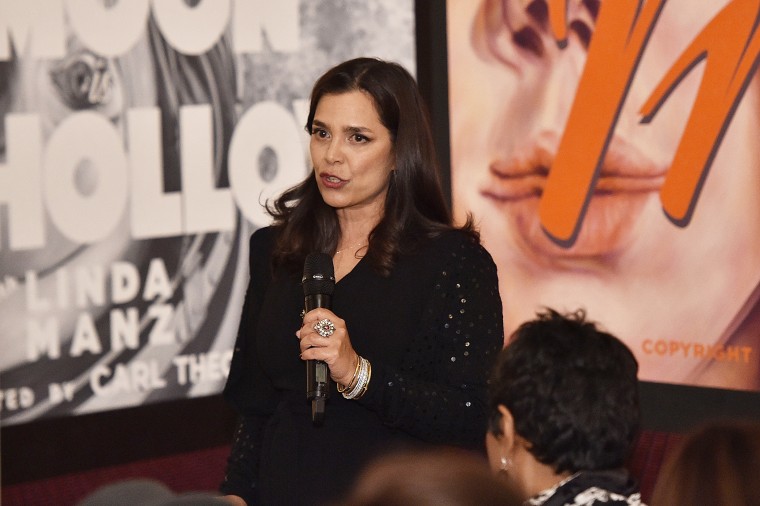It's been more than 30 years since the Equal Rights Amendment came close to becoming constitutional law in the United States. Since then, it has become something akin to the white whale for women's rights advocates: The proposed amendment is re-introduced year after year by Democratic lawmakers, and although it has historically enjoyed bipartisan national support, recalcitrant forces have stymied its progress in state and federal legislatures.
As Women's History Month begins, the U.S. is in the midst of a contentious election year, when congressional action is especially challenging. Women's issues have been for the most part marginalized by the 2016 campaigns, even though women make up a majority (51 percent) of the overall population. It is within this maelstrom that filmmaker Kamala Lopez is planning to deploy her new Kickstarter-funded documentary "Equal Means Equal" — which features formidable figures like feminist icon Gloria Steinem and Oscar-winner Patrica Arquette — to reignite the conversation around the Equal Rights Act (ERA).
“This film is designed to arrive at this moment. I’ve been reverse engineering this all along," Lopez told MSNBC on Tuesday. "It is absolutely critical that women of all stripes, and of all parties, and of all ages are aware that their civil rights are, have been, and will continue to be violated on a very basic, profound level until they call representatives to account on the issue and do not permit a single local, state, federal, PTA appointee or elected person that doesn’t stand up and say ‘I believe in equality for all American citizens' period, end of story."
RELATED: Women want Sanders but expect Clinton: poll
The genesis for this project started years ago with a series of PSAs highlighting the need for a constitutional amendment guaranteeing equal rights and protections for women. That eventually evolved into an ambitious film delving into the incredible challenges facing women globally today — from pay inequality to rape culture to pregnancy discrimination and much, much more. The film draws the stark conclusion that "not only is there a war on woman but we are losing battles and rights we won years ago."
Why has women's rights taken a backseat to other issues, when gender equality enjoys nearly universal support? Lopez believes the systematic partisan politicization of the topic, coupled with the interests of corporate America (which has made billions through, in her words, "ripping off" women by paying them less) has kept Americans in the dark. But she sincerely believes that rising activist movements and a frustrated voting populace will coalesce around the eventual ratification of the ERA, regardless of who becomes president this November.
"What women can do, and what the ERA can do, is make it a gentle revolution, because that’s what we bring to the table. Because the revolution is coming, it’s very clear how it’s going to go down. It’s a matter of whether we want to include women in a power position at the table to be able to make this a gentle, holistic, comprehensive, compassionate revolution versus what it could very well become," Lopez said.
Both she and the film credit the late Supreme Court Justice Antonin Scalia with unintentionally reigniting the movement by acknowledging during a 2011 interview with California Lawyer that women are not named in the Constitution and were purposefully left out.
"Certainly the Constitution does not require discrimination on the basis of sex. The only issue is whether it prohibits it. It doesn't," Scalia said. "Nobody ever thought that that's what it meant. Nobody ever voted for that. If the current society wants to outlaw discrimination by sex, hey, we have things called legislatures, and they enact things called laws."
However, the ERA has been on the legislative bubble since it was first introduced in 1923. Although it passed both houses in the early 1970s and enjoyed support from both Republican and Democratic presidents until the Reagan revolution in 1980, it never reached ratification in the 38 states required to make it law, falling just three short. The ERA was successfully lobbied against by social conservatives like right wing activist Phyllis Schlafly, who convinced many women that the amendment could backfire on women, forcing them to use unisex bathrooms or be drafted into the military.
RELATED: Shuttered: The end of abortion access in red America
In retrospect, some have argued that pro-ERA forces may have erred by lobbying for congressional support first before turning their attention to individual states, but Lopez isn't interested in re-litigating the past, although she admits that activists should be "prepared for push back."
"I’m not a constitutional lawyer, I’m not even a political individual per se. I’m a filmmaker and an actor, so from my perspective, the goal is communication, broad multiple angle communication," she said. "Whatever it takes, that’s my position."
Meanwhile, Lopez is looking into a strategy to get her film wide distribution. "It really is like now or never and it’s gotta get out there,” she added.
It was recently shown privately at the Wilshire Screening Room in Los Angeles with Arquette — who started a national conversation on the gender pay gap with her Academy Award acceptance speech last year — and other women's rights advocates in attendance. Following the screening, Lopez and Arquette unveiled a Change.org petition renewing the push for ERA ratification. It has nearly 75,000 signatures already.
"With the upcoming 2016 election, we need to intensify the conversation around women's issues and compel our lawmakers to protect the basic civil and human rights of American women by passing the ERA," wrote Arquette in the petition. "It is time that we finally make this happen for ourselves, our daughters, and for the future of our nation."
Correction: An earlier version of this piece incorrectly stated that Hillary Clinton had opposed the ERA in her youth. In fact she supported the amendment. This piece has been corrected to reflect that fact.
